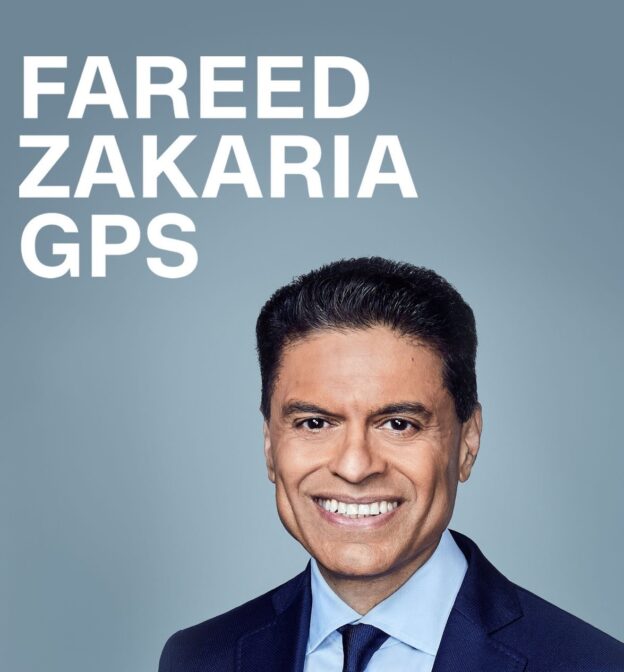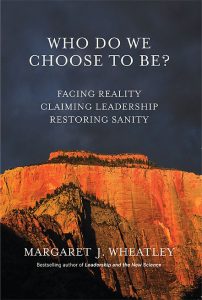Nations are Complex Adaptive Systems
I am a fan of Fareed Zakaria’s GPS: the Global Public Square. It is broadcast a couple of times each Sunday on CNN. On December 29, 2024 he did a special report about the current mood in American politics towards the political philosophy that goes by the label “America First.” This is a term that Donald Trump is using to refer to a set of policies that will minimize US engagement with other nations around security concerns, will increase tariffs to protect US businesses, and will as much as possible close our borders to immigration. These are components of isolationism.
Zakaria traces the history of isolationism in the politics of the nation in the first century of its life, to the drift after WWI under Woodrow Wilson to a more globalist philosophy, and then in anticipation of the US’s entry into WWII, to FDR’s efforts to create a new vision of the role of the United States in the community of nations.
Zakaria’s focus is primarily on shifts in the Republican Party. He highlights the decision by Dwight Eisenhower to run against Howard Taft because of Taft’s fervent belief in isolationism. The success of Ike as a President, both with regard to international stability and national prosperity resulted in a shift in the dominant political philosophy that peaked with Ronald Reagan’s metaphor of the US as a shining city on a hill for all the nations to see.
The ascendency of Pat Buchanan, while not sufficient to propel him into the Presidency, was powerful enough to spark a smoldering in both Bush’s administrations, that then burst into flames with Donald Trump. The call to care for “America First,” which started as a reaction to Woodrow Wilson and which was defeated by Dwight Eisenhower, has again become the dominant political philosophy.
In the closing statement segment of his show, Fareed Zakaria expresses deep concerns, not only about what this approach will do to the US, but also the impact it will have on the international community. The results of high tariffs, restricted immigration, and abandonment of agreements with regard to trade and mutual security will result in the collapse of the international rules-based order.
This perspective is certainly not unique to Zakaria. Even now in the Republican Party there is debate about how isolated we will choose to be. This conversation is about the wisdom of differing policy goals even more than specific practices. It is based in the language of political philosophy and political science.
Missing from this conversation is a consideration of the science of complex systems. The science of complexity has applications for biology and chemistry and even psychology. This is a science that, among many other things, describes the different ways that systems fare when being more or less isolated.
When a change in one aspect of the system results in changes in other aspects of the system such that the system behaves differently, it is said to be complex. Complexity is a quality of a system in which there are multiple interdependent variables. In the largest sense everything is part of one massive system. But we form the idea of a system by creating a boundary around the elements we choose to include. A pond can be seen as a system, or a frog in the pond may be seen as a system. Systems are made up of systems.
The science of complexity distinguishes between complex physical systems and complex adaptive systems. Automobiles and HVAC systems are complex physical systems. Fortunately we don’t have to understand them to use them. But when the elements in a system are themselves able to change how they function, the resulting system is adaptive. It can change to address changes in its environment.
Starlings in a murmuration, ants in a colony, and soccer players on the pitch are examples of complex adaptive systems. A friendship, an economy, a nation, a planet are all complex adaptive systems. So what does the science tell us about what happens in a complex adaptive system like a country when it seeks to make its boundaries less porous?
Every system has a boundary. We make distinctions between what is in the system and what is outside of it. The system is defined by its boundary. Isolationism holds that the nation will do best when the boundaries are clear and restrictive. Isolationism holds that we must limit as much as possible the transfer of goods, and people, and commitments across the borders. It wants our boundaries to be impervious.
Isolationism is highly correlated with anti-democratic politics. If we see the country as a physical system, not an adaptive one, we will control the system as much as possible. We will restrict the capacity of elements in the system to have meaningful choices. “As long as the choice of the people is around which TV show to watch or which sports team to follow, they won’t need to be making decisions about policy. If they have a vote, we want them to vote on vibe, not policy.”
But democracy holds that the nation works best when all of the elements of the system, in this case, the citizens, are able to make meaningful choices about how the nation behaves. All of the starlings are welcome to join the murmuration as long as they fly the same speed, maintain the optimal distance, and turn to move toward the center of the flock. Just so a nation does best when its citizens, while conforming to certain constraints on their own behavior, can shape the policies and choose the leadership. The more the citizens can engage in the creation of the nation, the more vibrant it will be.
And yet there is a more basic lesson that complexity theory can give us about the health of the nation with regards to the implications of isolationism. This has to do with a physical concept known as entropy. Entropy is the certain result of the passage of time on a closed system. As the system moves through time it will run down, that is, entropy will increase.
To counter entropy, the system must interact with the larger context in which it exists. My car is a complex physical system which will perform just fine for hundreds of miles. But at some point I will have to open the gas cap and add fuel or it will cease to function.
The degree to which the complex adaptive system which is the United States chooses to restrict its relation to the larger system of nations by limiting the flow of people, goods and services, and agreements with other countries, is the degree to which it will choke on its own limitations. When nations are isolated from each other, entropy grows in the system. The only way for a nation to revive itself is to expand by the accumulation of new territory. The US would have to annex Canada, Greenland, or the Panama Canal. The US will have to start a war to survive.
Thus the new Trump administration, which ran on the populist message of keeping us out of wars, is already pressing to expand the nation’s borders by coercion. Fareed Zakaria is right. If the country is isolated, it will weaken, and it will sicken all nations in the process.




